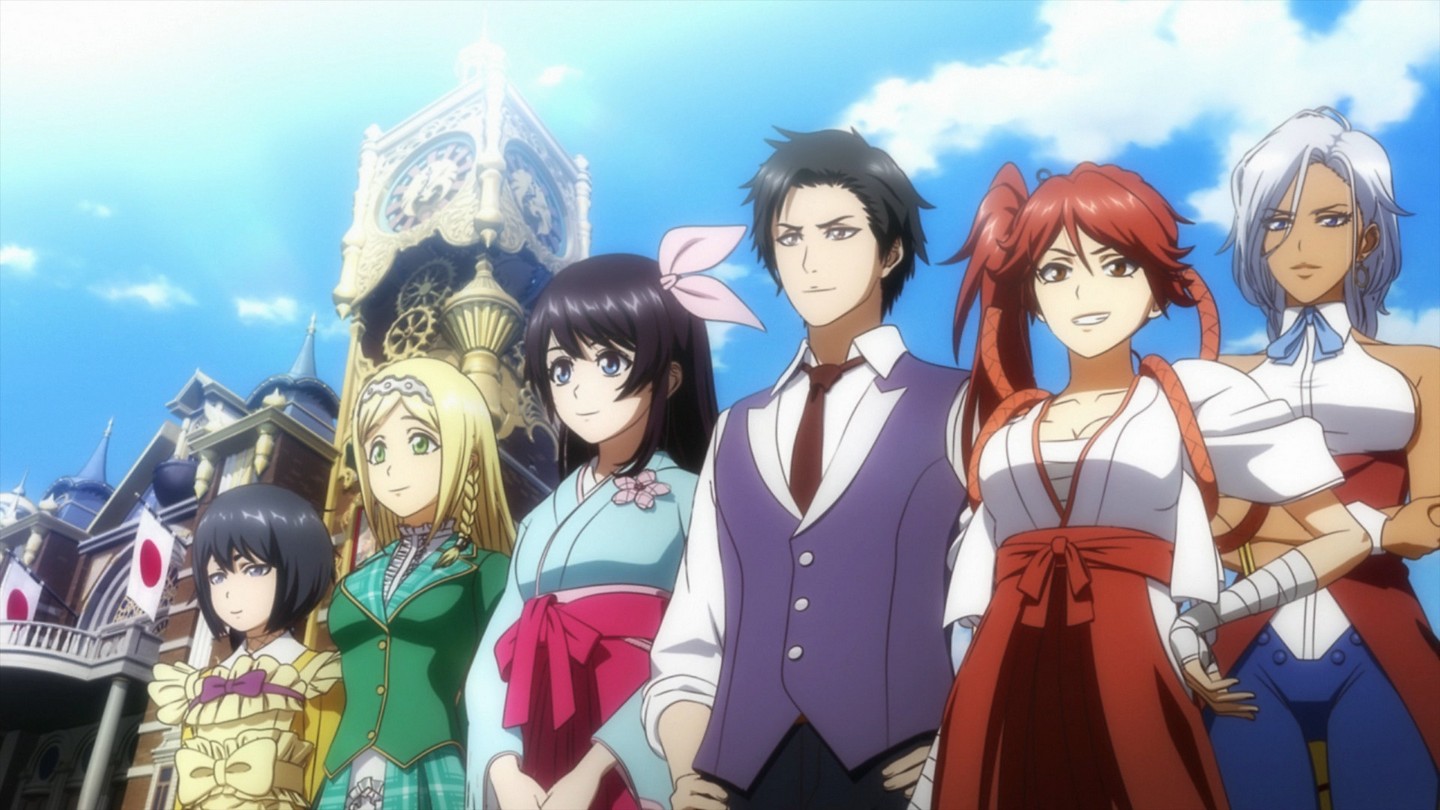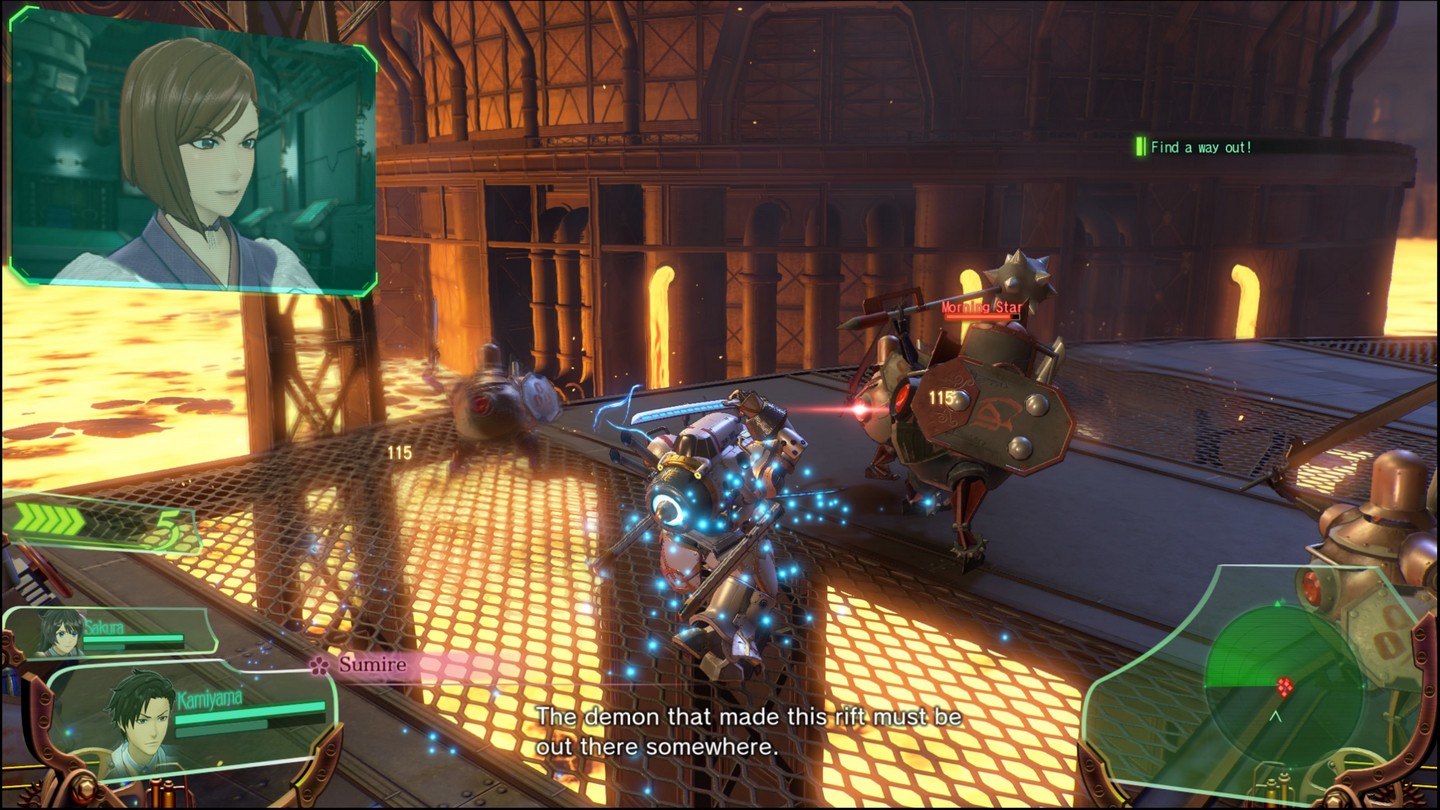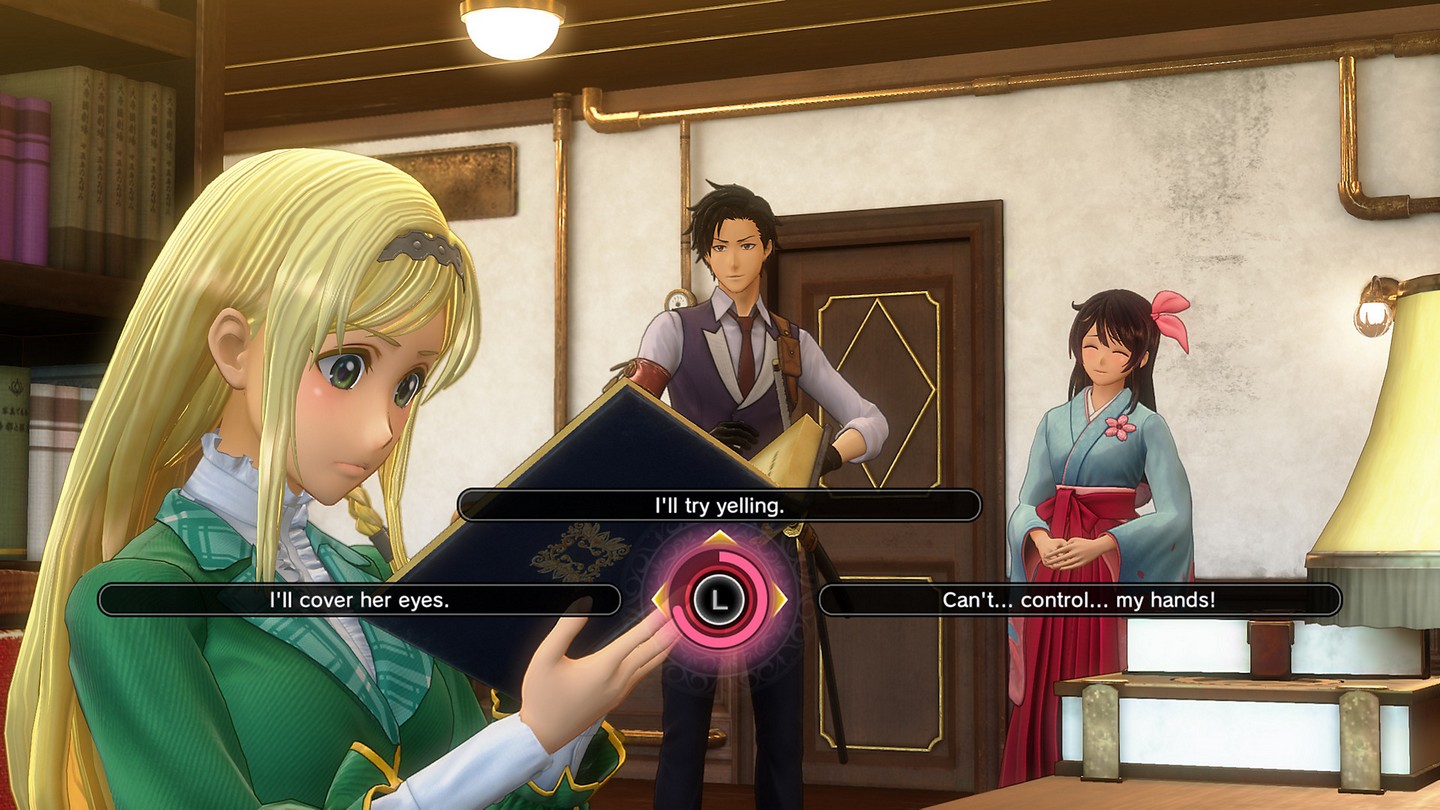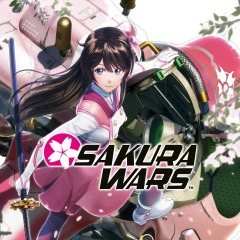Imperial Combat Revue, Move Out!
A decade ago, I was introduced to a long running JRPG series that hadn’t seen the light of day in the States in the form of “Sakura Wars: So Long My Love”.
Blending equal parts visual novel, dating sim and strategy RPG, it was a combination of genres that came together effortlessly to create something wholly unique. Suffice to say, I was very impressed with what I experienced and eagerly anticipated the next title in the series.
Unfortunately, that was also when the series went into a long hiatus, and given that none of the previous titles had seen official translations for the States, I was left wanting more.
Years later, when they finally began development on a new entry in the series and announced that it was coming stateside, I was thrilled.

The new imperial combat revue members are an eccentric bunch.
MSRP: $59.99
Platform: PS4
Played on: PS4 Pro
Voice Over Options: JPN Only
Length: 25 hours~
Twelve years after the events in “So Long My Love”, the earth has found itself in a peaceful age where demon attacks have become less of a daily concern. During times of relative peace, the importance of the defenders of Tokyo have been called into question, and the once mighty Imperial Combat Revue faces extinction from obscurity. It’s up to newly assigned captainSeijuroKamiyama to turn things around and bring life back to the Imperial Combat Revue’s Flower Division.
While this is a clear continuation of the series in terms of the story and world building, the stars of the previous titles are nowhere to be found, with exception to Sumire, who plays an important role in the story.
Those who wanted to check in on their favorite characters from the past games will surely be disappointed, but given that this is a soft reboot of sorts and a new introduction to another generation of gamers, I thought it made sense to shift directions a bit.
Despite the change in direction in terms of the story, much of the game play remains familiar, with the exception of the combat.

Hack and slash your way to victory.
In “So Long My Love” as well as all other previous titles, the combat took place in a typical SRPG arena where each movement and action must be taken with great care as one wrong move could lead to disaster.
In a stark departure, the combat featured here is typical hack and slash musou action featured in games like Dynasty Warriors, and basically most other games with the word “Warriors” in thetitle. As monsters spawned by the dozens, I would blow them all away with wide sweeping attacks which would charge up my screen clearing special attacks.
I would rinse and repeat this process over and over while dodging out of harm’s way from time to time.
At least I was able to have two characters most of the time which I could switch between on the fly, which helped to slow the mindless tedium from setting in too quickly but the mandatory platforming sections only helped to highlight the stiff controls.
Worse yet, there wasn’t any semblance of challenge to be found in the entire playthrough, and even the boss encounters that were built up by minutes of cutscenes were done away in a matter of seconds, undercutting any sense of drama that was present before battle.
While I believe that not every game needs to build its combat with difficulty in mind, a more balanced approach would have made these sequences more than just things I need to get through to get back to the fun stuff.
Speaking of fun stuff, the game play element that impressed me the most back then luckily remained intact.

LIPS, “Live & Interactive Picture System”. Way to force that acronym, guys!
Outside of the combat, Kamiyama will spend most of the time conversing with members in the Flower Division, and unlike most visual novels where time stops allowing the player plenty of time to choose the dialogue option they want,in Sakura Wars there is a varying timer to make any choice with making no choice being a valid option.
Now you might be thinking, isn’t that the same as what they did in those Telltale games? Well, Sakura Wars first introduced the system back in 1996, so we’re all learning something new today. The limited time also applied to most side quests as well, where I had to be decisive and make my moves quickly before the timer ran out and I would fail the quest.
As simple as this mechanic might be, it does a wonderful job of making conversing with others feel engaging, which is important as makes up the majority of the playtime. Each of the main characters also had an affection/mood meter, which would ultimately determine the characters endings I had access to as well as giving them buffs in battle if their morale were high.
As for the characters themselves, even though they play fairly close to familiar tropes, I ended up liking them all by the end thanks to my constant interactions with them. I would have liked to see more of each character in terms of their backstory outside of Sakura, as there is clearly favoritism going on for the titular heroine, but it was enough to keep me invested in seeing where the story would end up.
Given that the Flower Division’s leading ladies are actresses as well as singers, it was great to see them perform on stage, which helped to establish their charm and personality. It’s worth mentioning that while there is only the Japanese dub available as an option, the fact that every voice actress is able to sing their own character songs is fantastic, as I’m an absolute sucker for that stuff.
Even though the lackluster combat is a major detractor in an otherwise great return to form for the series, it doesn’t ruin the experience either. Despite being on hiatus for so long, this release proves that there is life left for the series, and I for one can’t wait to see what’s next in store for the world of Sakura Wars.
Fun Tidbit – I recently learned that the Saturn version of the original Sakura Taisen was fully fan translated and have been playing through it. It’s crazy how far ahead of its time this 1996 game was!
Review copy of game provided by publisher.
